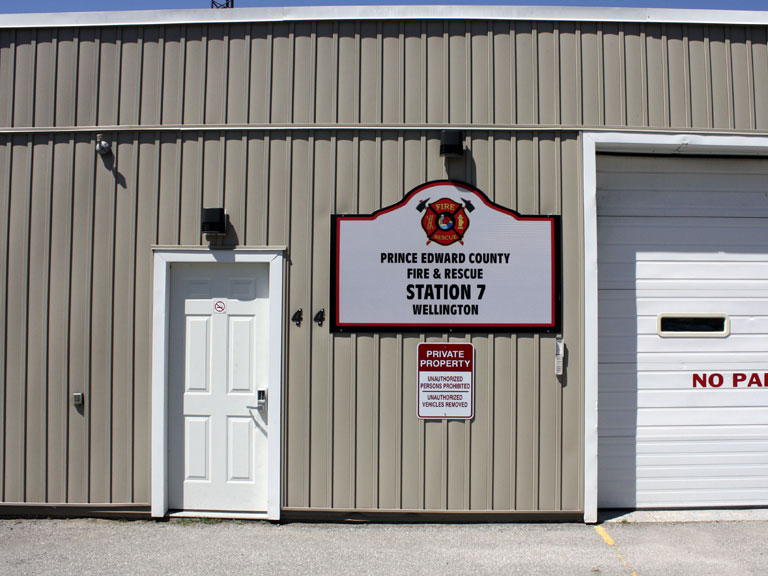County News
Tough rules

Volunteering just became harder
In this community, we rely on a brigade of volunteer firefighters to keep us safe. For that tradition to continue, we need to make it easier, not harder, for volunteers to sign up for our local fire departments.
There are 10 stations in our region—each with a team of volunteers—and it’s no small feat to keep these departments staffed. These men and women dedicate a large portion of their lives to protecting their neighbours. They wear radios at their kids’ games and dash from dinner parties when they get the call. It’s a huge commitment. Recently, the province rolled out new certification standards for fire departments across Ontario, making it more difficult for volunteers to apply.
Under the new standards, departments will be required to certify career and volunteer firefighters to the standards of the National Fire Protection Association (NFPA). The NFPA is an American-based standards system, but it’s recognized internationally as the benchmark in firefighter training. Existing firefighters, pump operators and public educators will need to re-certify, as well as staff seeking advancement into supervisory roles. Another concern for local departments will be the time off from work that volunteers will require to fulfill the new training requirements. The training doesn’t have to be done all at once, but must be completed within a two-year span, with an allowance for a one-year extension. It’s a huge imposition on both parties. The local fire departments must pay for the courses, the training and the materials. The volunteer must take a significant time away from their paid jobs to complete the course and receive his or her certification. In total, there are 240 hours of practical time and 240 hours of class time required.
The County’s local Fire Department is already training their volunteers to NFPA standards, but without the official certifications. To receive the official certifications, they need to take a fivehour exam along with the class times and all requirements under the NFPA.
Fire Chief Scott Manlow is concerned about the effect this will have on his department. Not only the further impositions put on the shoulders of prospective volunteer firefighters, but the money that will be required by the department for each volunteer to complete the training.
“It’s estimated that the new certifications will cost the department roughly $8,000 per new volunteer. We currently have 139 volunteers in the County and every year there is a turnover of eight to ten people. So that’s a lot of money that this department will have to come up with one year from now,” says Manlow.
The new safety regulations were released by the province in February and sparked outrage from various stakeholders and communities unhappy with the new regulations and strict timelines. Many rural fire departments are shaking their heads, wondering how they are going to come up with the funds and where they will find new candidates willing to take on more of a commitment.
This year, Loyalist College introduced its Fire Service Career Preparation and Development (FSCPD) program, which will give a Loyalist Board of Governors Certificate. The program is designed for volunteer and career firefighters and will be offered through a combination of online theory courses and hands-on practical training delivered at the complex. The program can be completed in as little as two semesters. Upon successful completion, graduates will be eligible to undertake provincial testing to meet the requirements of the NFPA 1001 and NFPA 472 with the office of the Fire Marshal. Applications for the fall, winter and spring intakes of the program, starting in September 2018 can be submitted through the Loyalist College website.
“With the Ministry of Community Safety and Correctional Services now requiring municipalities to certify their volunteer and full-time firefighters in Ontario, the partnership between the Hastings Prince Edward Mutual Aid Association and Loyalist College could not have come at a better time. The College’s FSCPD program will help to fill the mandated need for certified firefighters in rural Ontario,” says Robert Rutter, Deputy Fire Chief of Prince Edward County Fire and Rescue.
With training now available through local colleges as well, the hope is that people take the initiative and get the training on their own. Loyalist College’s new program is a great start to building more training, but the next step should be some subsidiary or government funding for local, volunteer- driven fire departments to use this resource.
The bottom line is, we can’t make it harder for people to volunteer their time—otherwise the system will fail.

Comments (0)